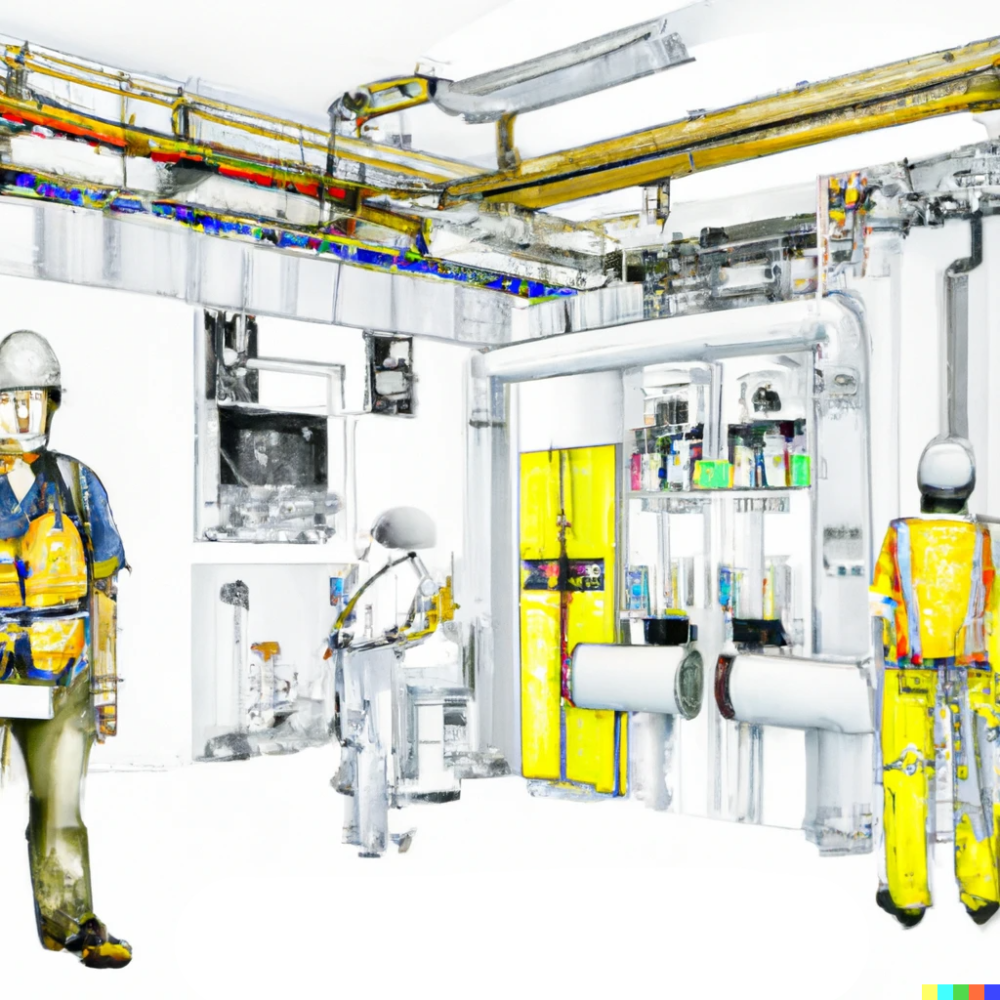Building Commissioning: Understanding the Quality Assurance Process
Commissioning the building is a comprehensive quality assurance process in the construction industry aimed at ensuring that all components in a building, including the mechanical, electrical, plumbing (MEP), and fire protection (FP) systems are installed and tested properly. The primary objective of commissioning is to deliver the building as designed and meet the owner’s goals. The commissioning process is divided into four phases: design, construction, acceptance, and post-acceptance.
Design Phase
In the design phase, the commissioning agent works closely with the owner, design team, and contractors to develop the owner’s project requirements, and perform an independent review of plans and specifications. The commissioning agent’s role in this phase is to ensure that the building systems will meet the owner’s requirements and expectations. Key responsibilities include creating commissioning specifications and assisting with the development of a comprehensive training program.
Construction Phase
During the construction phase, the commissioning agent takes a hands-on approach to ensure that the building systems are installed and tested properly. Key responsibilities include creating a commissioning plan, reviewing submittals, conducting commissioning meetings, performing site visits, attending equipment start-ups, and monitoring all issues and deficiencies. In this phase, the commissioning agent acts as an independent third-party, ensuring that the building systems meet the owner’s requirements and specifications.
Acceptance Phase
In the acceptance phase, the commissioning agent performs functional tests of the building systems and documents compliance. This phase is critical for ensuring that the building systems are operating as intended and meeting the owner’s requirements. The commissioning agent’s role in this phase is to verify that the building systems are installed and tested properly, and that the systems meet the owner’s requirements.
Post-Acceptance Phase
In the post-acceptance phase, the commissioning agent assists with owner training, provides documentation, and conducts seasonal testing. The commissioning agent’s role in this phase is to ensure that the building systems continue to perform as intended and meet the owner’s requirements.
Key Players in Building Commissioning
The commissioning team includes the owner, design team, contractors, and commissioning agent. The commissioning agent is responsible for coordinating and managing the commissioning process, and ensuring that all components in the building, including the MEP and FP systems, are installed and tested properly. The design team is responsible for developing the building’s plans and specifications, and the contractors are responsible for installing the building systems. The owner is responsible for providing the commissioning agent with the requirements and expectations for the building systems.
Through building commissioning, building owners can ensure their investment is protected, and the building is safe, reliable, and energy-efficient.
Benefits of Building Commissioning
Commissioning the project provides several benefits, including improved building performance, increased energy efficiency, and reduced maintenance costs. Commissioning also helps to identify and resolve any issues before they become major problems, reducing the risk of costly repairs and downtime. In addition, commissioning helps to ensure that the building systems meet the owner’s requirements and expectations, delivering a building that performs as intended.
Building commissioning is a critical quality assurance process in the construction industry that ensures that all components in a building are installed and tested properly. The commissioning process is carried out by a commissioning agent who works for the building owner and has the sole objective of making sure the building is delivered as designed and meets the owner’s goals. The commissioning team includes the owner, design team, contractors, and commissioning agent, and the commissioning process is divided into four phases: design, construction, acceptance, and post-acceptance. Commissioning provides several benefits, including improved building performance, increased energy efficiency, and reduced maintenance costs.
Building Commissioning: Frequently Asked Questions
What is Building Commissioning?
Building Commissioning is a quality assurance process in construction that ensures that all components in a building, including the Mechanical, Electrical, Plumbing, and Fire Protection (MEP/FP) systems, are installed and tested properly to ensure they function as intended.Who is involved in the Commissioning process?
The commissioning team includes the building owner, the design team, contractors, and the commissioning agent. The commissioning agent is hired by the building owner and has the sole objective of ensuring the building is delivered as designed and meets the owner’s goals.What is the role of the Commissioning Agent during commissioning?
The Commissioning Agent’s role includes assisting with the development of the owner’s project requirements, conducting an independent review of plans and specifications, creating commissioning specifications, conducting commissioning meetings, performing site visits, monitoring all issues and deficiencies, and functionally testing systems.Is there any training for the owner involved in the commissioning process?
Yes, the Commissioning Agent assists with owner training and provides documentation, including comprehensive training programs. The owner will also be involved in seasonal testing, post-acceptance, to ensure the building continues to operate as designed.Who is present during the initial start-up and operation of equipment?
The Commissioning Agent is present during the initial start-up and operation of equipment, along with contractors and the design team. The Commissioning Agent’s role is to ensure all systems are functioning properly and to document any issues or deficiencies that need to be addressed.
In conclusion, Building Commissioning is a crucial step in the construction process that ensures the successful delivery of a building that meets the owner’s requirements and goals. It involves a systematic and thorough process, carried out by a commissioning agent, with the involvement of key stakeholders including the owner, design team, contractors, and commissioning team. The commissioning process involves four phases: design, construction, acceptance, and post-acceptance, each of which plays a significant role in ensuring the building is delivered to the highest standards.
 Copyright secured by Digiprove
Copyright secured by Digiprove 



